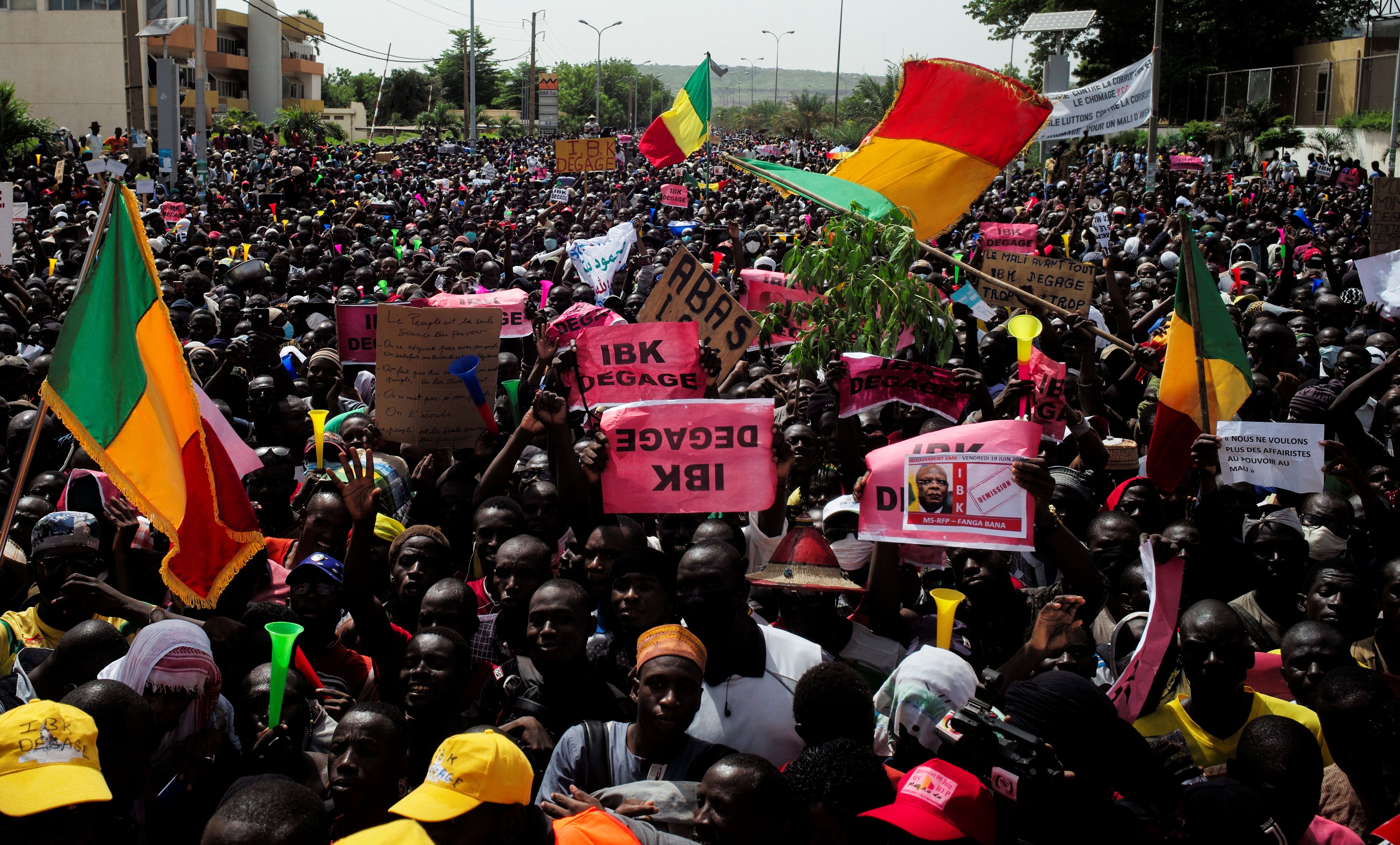What We're Watching: Mali's protests, Israel's annexation, Poland's election
Go home, Malians tell president: Tens of thousands of Malians gathered in the streets of the capital city, Bamako, on Friday to demand the resignation of increasingly unpopular President Ibrahim Boubacar Keita. In the second mass protest against him in less than a month, demonstrators said they are fed up with rampant corruption, a weak and disgruntled military incapable of stopping rising jihadist attacks, and the government's botched response to the kidnapping of opposition leader Soumaila Cissé by Al Qaeda-linked militants. Keita has led the sprawling West African nation since 2013, when he was elected to fill a power vacuum soon after French troops helped put down an Islamist rebellion in the north. The Economic Community of West African States, a regional political and economic bloc, is urging Keita — reelected in 2018 for a new 5-year term — to form a unity government to end the unrest.
Israel pushes ahead with annexation: Despite widespread international condemnation regarding its plan to annex up to 30 percent of the West Bank, Israel's government may, as early as next week, begin the process of doing just that. The move would not extend citizenship to Palestinians in those areas even though they would be subject to direct Israeli rule. Back in January, the Trump administration said that an annexation plan must be tied to a broader Israeli-US peace plan, but that process has since stalled. The stakes are high. Both the Palestinian Authority that operates in the West Bank and the Kingdom of Jordan have threatened to walk away from longstanding security agreements if Israel pushes ahead with annexation, prompting fears of a return to the violence that characterized the Second Intifada in the early 2000s. Meanwhile, in an unprecedented move, the United Arab Emirates Ambassador to the United States published an op-ed in an Israeli daily last week, warning that annexation would threaten the normalization of Israel's relations with the entire Arab world. Prime Minister Netanyahu has made cultivating closer ties with countries including Saudi Arabia, Bahrain and the UAE a foreign policy priority.
Poland's tight polls: There are just a few days until Poland's June 28 general election, and incumbent right-wing President Andrzej Duda isn't spending many of them in Warsaw or Krakow. Instead, he's headed to the White House for a widely publicized face-to-face with President Trump. Duda says the ad-hoc meeting was scheduled at the last minute to discuss crucial issues of public health and security in light of the COVID-19 pandemic. But many analysts say that with his main opponent, Warsaw mayor Rafal Trzaskowki, rising in the polls, this is Duda's last-ditch effort to cozy up to Trump – who is admired by much of Poland's influential right-wing electorate. Strong ties with Washington are doubly important for Duda given his country's increasing isolation from the European Union, which has criticized his government for eroding democratic norms. Duda may be banking on Trump to get him over the line, but whether that will be enough to overcome the pandemic-induced economic crisis that has been a boon for Poland's centrist candidates in recent weeks remains to be seen.
UPDATE: An earlier version of this article stated that the Israeli government had announced that it was going to begin annexing up to 30 percent of the West Bank next week. In fact, it is not known precisely how much territory the government intends to annex or at what pace.
